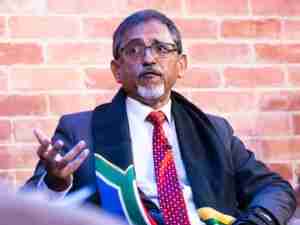Hosting Lee amid the pomp of a formal state visit, Obama sought to underscore what is widely seen as a high point in the longtime alliance between Washington and Seoul as well as his ever-closer personal bond with the South Korean leader.
The top item on the agenda was the consummation of a U.S.-Korea trade pact, which is expected to help anchor the United States in the economically dynamic Asia-Pacific region as it competes with an increasingly assertive China.
The two leaders were also expected to coordinate strategy on the North Korean nuclear standoff.
The U.S. Congress ratified the trade deal just hours after Lee arrived on Wednesday. It was the largest of three pending bilateral agreements, the other two with Colombia and Panama, and all passed in rapid succession.
"America is leading once more in the Asia-Pacific," Obama said, standing shoulder-to-shoulder with Lee at a welcoming ceremony. "With our landmark trade agreement we will bring our nations even closer, creating new jobs for both our people, and preserving our edge as two of the most dynamic economies in the world."
Calling it a "win" for both countries, Lee -- who must still secure endorsement of the pact by South Korea's parliament -- said it would become "a new engine of growth that will propel our economies forward."
Obama has touted the accords as a way to boost U.S. exports and create tens of thousands of jobs at home at a time when his 2012 re-election chances likely hinge on whether he can reduce an unemployment rate stuck above 9 percent.
But critics, including some U.S. labor leaders, say the pacts will actually hurt U.S. employment.
The deal between the United States and South Korea, the world's largest and 14th largest economies, would be the biggest U.S. trade pact since the North American Free Trade Agreement went into effect nearly 18 years ago.
Obama sent the three pacts to Capitol Hill just 10 days ago, four to five years after they were first negotiated under his predecessor, George W. Bush.
North Korea on the Agenda
Lee -- greeted by an honor guard under rainy skies on the White House south lawn -- has proved a reliable partner for Obama, lining up with U.S. policy on North Korea, Afghanistan and the G-20 summit aimed at stabilizing the world economy.
But South Korea had chafed over U.S. delays getting the trade deal passed. It was signed under Bush in 2007 but until now remained stalled under Obama, partly due to renegotiation of auto provisions to get a better deal for U.S. car makers.
Despite that, Lee -- whose mandatory single term ends in early 2013 -- has managed to build personal chemistry with a U.S. president known for a mostly detached diplomatic style.
Lee was feted on a rare state visit to Washington. He was to hold a joint news conference with Obama on Thursday, then address Congress and attend an elegant White House dinner.
Obama will then take him on Friday for a road trip to Detroit, home of the U.S. auto industry.
In talks on Thursday, the two were also expected to try to keep a united front on North Korea's disputed nuclear program.
It is a stark reminder that Iran is not the only nuclear standoff that has continued to dog the Obama administration. Relations with Tehran are under new strain over U.S. accusations this week that Iranian officials backed an alleged plot to assassinate the Saudi ambassador in Washington.
Obama and Lee are likely to consider whether efforts to re-engage with Pyongyang are worth pursuing further.
Alluding to North Korea, Lee pledged that "our two countries will ensure peace and stability of the peninsula and beyond."
Seoul's relations with the isolated North soured after Lee took office in 2008 with a pledge to link aid to progress in the U.S.-led efforts to end the North's nuclear programs.
Ties between the two Koreas fu








